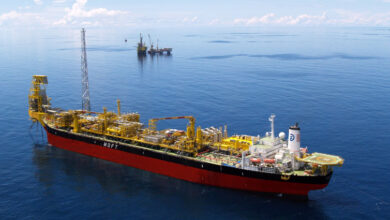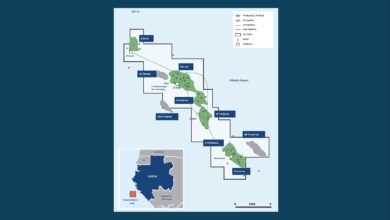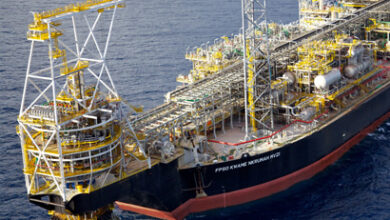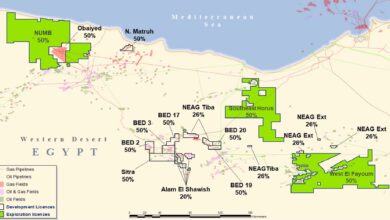Wild Well Control to offer subsea capping system for up to 15,000-ft water depths
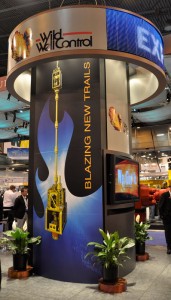 Wild Well Control will introduce a global subsea well containment system this fall, according to an announcement the company made at the 2011 Offshore Technology Conference in Houston on 4 May. The system will include a dedicated subsea blowout preventer (BOP) stack designed for capping operations, special hydraulic debris-clearing equipment, subsea engineered dispersant injection equipment and a subsea containment management system.
Wild Well Control will introduce a global subsea well containment system this fall, according to an announcement the company made at the 2011 Offshore Technology Conference in Houston on 4 May. The system will include a dedicated subsea blowout preventer (BOP) stack designed for capping operations, special hydraulic debris-clearing equipment, subsea engineered dispersant injection equipment and a subsea containment management system.
“We developed this system in response to seeing the initiatives begun by the US Bureau of Ocean Energy Management, Regulation and Enforcement (BOEMRE) in the Gulf of Mexico being followed in other parts of the world. We anticipate them to be brought into effect,” Bill Mahler, executive vice president and general manager, said. “In the Gulf of Mexico, we’ve seen the Helix Consortium and the Marine Well Containment Company; they’re addressing many response components through a combined effort. We’re focusing on the four things that we do best, which are debris removal, well capping, subsea containment and subsea dispersant.”
The 130-ton modular subsea capping stack is designed to permit quick reconfiguration of the stack for response to a specific subsea well incident. Modularity also allows the subsea stack to be mobilized via air charter to any global location. The capping stack consists of one 18 ¾-in. 15K CIW single ram Type TL BOP, one 18¾-in. 15K CIW double ram Type TL BOP and an 18 ¾-in. 15K drilling spool with double valves and chokes.
Also included in the system is a subsea hydraulic power unit for operating the debris-clearing equipment and to enable full functions of the subsea capping stack. A full set of hydraulic connectors is provided to enable adaptation to any subsea drilling stack.
The system, which will be capable of capping a well in water depths of up to 15,000 ft, will be based and maintained in Aberdeen, according to Mr Mahler. Deployment time around the world is expected to take two to three days, depending on transport availability.
“We’re not going to be deploying these on the first day; that’s a misconcept that things need to be on the water and going to the location in so many hours. You don’t know what the debris field is; you need to make a good assessment of the site. It takes time to put it all together. Regardless of the preparation, you’ll never be prepared for what’s going to happen,” Mr Mahler said.
“Our system is designed to meet and exceed the new regulations in the Gulf of Mexico and those that we anticipate other regulatory agencies to put in place for their respective regions of the North Sea, West Africa, Greenland, Southeast Asia, the Mediterranean, Brazil and other global deepwater regions.”
The first-generation system will be available by subscription. Wild Well Control has obtained commitments from four operators and hopes to eventually obtain commitments from a total of 12 to 16 operators.

